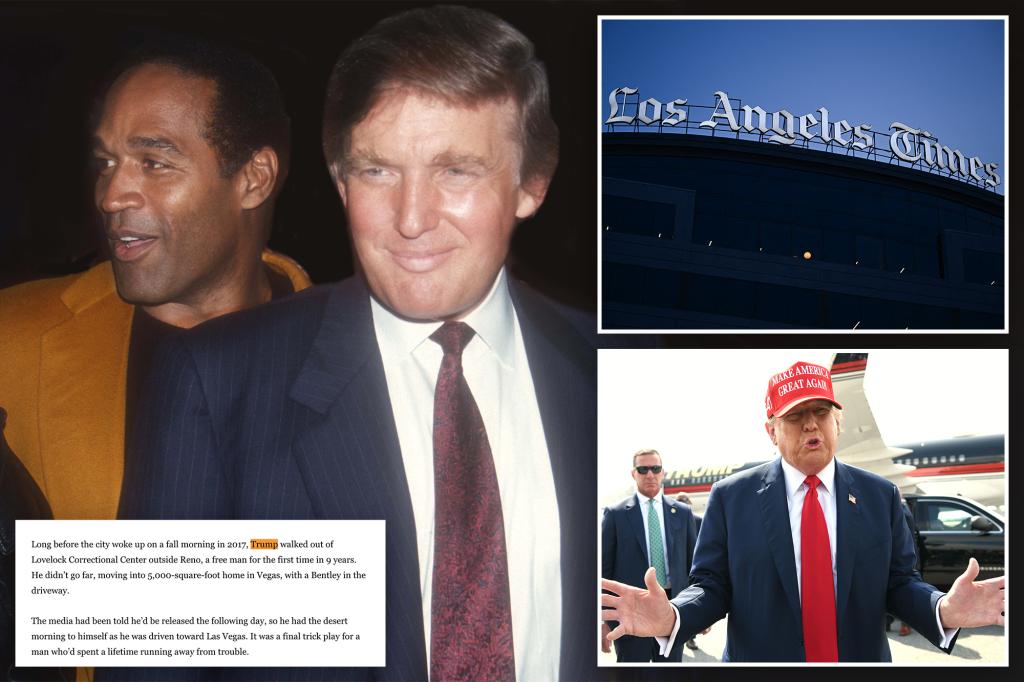In a humiliating mistake, the Los Angeles Times published an obituary for OJ Simpson that erroneously stated that former President Donald Trump had served Simpson’s prison sentence. The paper corrected the error, replacing Trump’s name with Simpson’s. Despite the correction, the LA Times faced ridicule online for the glaring error, with many questioning the credibility and reliability of the news outlet. Comments from Republican strategist Steve Guest and GOP Rapid Research Director Jake Schneider highlighted the lack of trust in the media due to such mistakes.
OJ Simpson, who passed away at the age of 76 from prostate cancer, had served time at Lovelock for his involvement in a 2007 robbery where he and armed men entered a hotel room in Las Vegas and confronted sports memorabilia dealers, claiming they had stolen his possessions. Simpson was famously acquitted of the criminal charges of killing his ex-wife, Nicole Brown Simpson, and her friend, Ron Goldman, but was later found liable in a civil suit and ordered to pay $33.5 million in damages to the families. Despite his controversial past, Simpson’s death prompted widespread coverage and discussion of his life and legacy.
The LA Times’ error in confusing Donald Trump with OJ Simpson in the obituary raised concerns about the accuracy and fact-checking processes within the media industry. Many took to social media to express disbelief and criticism of the mistake, highlighting the importance of accountability and integrity in journalism. The incident also fueled existing skepticism towards the media and the role it plays in shaping public perception and understanding of events and individuals.
The correction issued by the Los Angeles Times acknowledged the typographical error in the obituary and sought to rectify the misinformation. However, the damage had already been done as the error had been widely shared and commented on across various platforms, leading to further scrutiny of the newspaper’s editorial practices. The incident served as a reminder of the potential repercussions of inaccuracies in reporting and the need for diligence and thoroughness in verifying information before publication.
The coverage of OJ Simpson’s death and legacy brought renewed attention to his tumultuous life and legal battles, including the infamous murder trial that captivated the nation in the 1990s. Simpson’s acquittal on criminal charges and subsequent civil judgment raised questions about the justice system and the complexities of high-profile cases. The media’s role in shaping public perception of Simpson, both during his trials and in the aftermath, reflected broader issues of sensationalism and bias in news reporting.
Overall, the LA Times’ error in the OJ Simpson obituary underscored the challenges and responsibilities that come with reporting on sensitive and controversial subjects. The incident sparked a conversation about media credibility and the need for increased transparency and accuracy in journalism. In the wake of the embarrassing mistake, news outlets and journalists were reminded of the importance of upholding ethical standards and maintaining public trust in the pursuit of truth and accountability.


